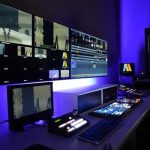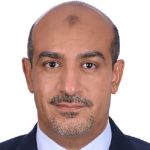In an exclusive interview with Vijaya Cherian, Saudi Arabia?s Minister of Culture and Information Dr. Abdul Aziz Khoja -- the man behind the dramatic transformation in the Saudi media landscape -- speaks about the challenges of creating a ?bureaucracy-free media? in the Kingdom and the initiatives undertaken by the Ministry to achieve this objective.
 Your Excellency, you have often spoken in the past of “opening new vistas for the Saudi media”. How do you plan to transform the media scene in KSA?
Your Excellency, you have often spoken in the past of “opening new vistas for the Saudi media”. How do you plan to transform the media scene in KSA?
I’m a firm believer in giving the media more room to manoeuvre and operate. The media plays a substantial role in educating and modernising a country. It also acts as a bridge between the people and the government. I have a lot of admiration for the Saudi media. It has been a partner with the government for more than six decades. However, the media here has exercised a huge amount of self censorship. It is not something that the government imposed on them. It was a self-imposed restriction. We could interpret the media as being a reflection of Saudi society, which has traditionally been quite conservative. As a result, the media was also quite closed. We are now trying to encourage the media to be more open. It must be the medium that brings the issues in society to the surface to the government. We encourage the media to be more critical and play the role of a mediator between the people and the government.
Can you give me a recent example where the media has exercised this freedom?
The floods in Jeddah this year is a good example where we saw both Saudi TV and the press exposing some of the malpractices in construction and how their abuse had exacerbated this tragedy.
As a great advocate for deregulation in broadcast, we hear that several steps have already been taken in this direction. Can you speak of some of KSA’s achievements on this front?
Yes, deregulation is crucial. Lifting the bureaucracy is the first step to deregulation. No doubt, all industries must work under a set of regulations but these laws must not hinder the work of the industry. If it does, it defeats the purpose of having them. Bureaucracy is one of the biggest obstacles to taking the media forward in Saudi Arabia. It’s like a dam that we must break so that the media can penetrate and flow freely as the waters would through the society to bring about change.
As part of our deregulation efforts, we have given a licence to one private comedy channel and within a couple of months, more licences will be granted to run private TV channels. We’ll follow the same process as we did for radio and allow people to bid. Six private radio stations will operate soon.
Deregulation is also very important to support employment initiatives in the country. In Saudi Arabia, the government is presently the main employer and this cannot go on forever. By encouraging new business opportunities and opening the market to private entities, Saudi nationals will have better employment opportunities and gain the expertise they require.
I hear you recently lifted a 30-year ban on the works of a Saudi poet?
Yes, that’s true. This is an example of how bureaucracy can affect intellectual thinking and the media. This was a bureaucratic mistake and it was time to rectify it. We will try to ensure this does not happen again. This is an example of how there should be less interference in literary and media activities. This is a huge task for the Ministry of Culture and Information (MOCI) and every step we take in this direction is indeed a huge step forward to liberalise the media in the Kingdom. Whatever positive steps we take will have a positive impact on not just TV, radio and the press, but also cinema.
Already, with so many new technologies, you can’t effectively ban anything because it’s all pervasive so we may as well embrace it. What we must ideally practice is only self censorship.
As a poet and a literary thinker, would you consider encouraging filmmaking in Saudi Arabia? On several occasions, Saudi filmmakers have decried the lack of a public platform to showcase their creativity in the Kingdom.
We do already have several Saudi men and women filmmakers who have made a mark internationally. Haifaa Al Mansour is one who has made us proud. Filmmaking should be encouraged as it plays a significant role in any culture. However, when you introduce films into a country, the society itself has to decide whether it is willing to accept it. Is Saudi society ready for it is a question to be reckoned with as it is still quite conservative and needs evolution.
I believe that the government is leaving this to the society to decide. The government is already providing financial support to those engaged in this craft but viewing films in public will be left to society. Having said that, I can assure you that change is on the way. More than 60% of Saudi society today is below the age of 20 and gradually, their needs will dominate and their mindset is clearly different from that of the older people. With time, we will see a remarkable change in how people view filmmaking. Change is on the horizon.
We hear you interact with the public through Facebook and Twitter? This is rare for ministers from the Arab world.
Facebook and Twitter help me to reach out to the public directly, especially our youth. As I said before, a huge percentage of the Saudi population are young people, and they are technology-oriented. These platforms give me an opportunity to listen to the voice of the new generation. They are our future and will run this country in the coming years. It’s important to keep in tune with their needs.
Content has always been a big issue in the Saudi market. Can we expect you to open more doors on this front?
Contrary to public opinion, people here can watch all the satellite TV channels. There are dishes all over the Kingdom. What you can see in Dubai, you can also see in Saudi Arabia. There are currently 160 soap operas running on Arabic satellite channels during Ramadan and they are vying for the attention of our viewers, which is one of the biggest markets in the Arab world.
What is your vision for Saudi’s media landscape and what changes can we hope to see in the coming months?
First of all, the media needs more breathing space. When you take bureaucracy out of the media, you give it a new set of lungs to breathe. We are trying to create a bureaucracy-free media. This is our first step. This cannot be done for as long as it remains a government entity entirely so we are in the process of transforming Saudi TV and Radio into a public corporation. The same goes for Saudi Press Agency. It’s better to work with government funding but free of the government’s administrative and financial regulations.
The proposal has already been submitted to the Council of Ministers and it’s in the final stages of approval.
Saudi TV, for instance, generates a lot of revenue but it needs to reach a point where it is self sufficient and can operate autonomously without funding from the government. I am sure it can be done if we create the right environment for it to operate creatively. Also, the Saudi market is huge for advertisers and we realise that to get a share of this pie, we have to change our traditional ways of operating.
What are some of the challenges of corporatisation?
We need to look at it from all angles. We don’t want to introduce it and find that it’s not working. We have to move carefully because the media is a source of information to the public. We are at the last stage in this regard. Transformation will mean implementing special administrative and financial rules that are different from that for government employees. People will have to change their mindset to work in this environment and contribute more creatively. Some training will be required but it will all happen in time.
Piracy has been a huge issue in KSA. How are you addressing this?
Traditionally, we have seen a lot of piracy here but we have taken it seriously by imposing severe monetary penalties on pirates. As a result, we have recently been taken off the top list of offenders of the International Intellectual Property rights. This is a big step forward for us. We received congratulations from our partners, the government of the United States recently for our positive steps in this direction. Tough regulations to counter piracy are an incentive for foreign investors to come to KSA and this, in turn, will help our economy. More companies are now willing to come here and invest in the country knowing that there are laws to protect their rights.
You previously mentioned that the media will play a big role in developing your foreign policy. Can you elaborate?
The media has always been considered as the medium to reach out to the public. It helps to clarify the stereotypical images that hinder our co-coperation with other countries. The Directorate of Foreign Information receives journalists annually to tour the country and see it for themselves so as to remove their misconceptions about the Kingdom.
Does Saudi TV have plans to launch more channels?
I’m reminded of an old American song that says 57 channels and nothing on. I like to believe we have seven channels and something on.
As a teacher yourself, do you have plans to introduce a training centre for aspiring TV journalists and filmmakers?
We do have quite a few media courses and facilities here. King Adbdulaziz University in Jeddah, King Saud University in Riyadh and Umm Al-Qura in Mecca are some that have good media departments.
On the technology front, where is the Kingdom headed?
We are taking the HD route and have invested in many studios to support this format. We use DVB-T technology with features to provide interactivity with our audience. Media should always travel in parallel with technology and not be left behind. If they are on a highway, I’d say both should be in the fast lane and keep up. We are always investing in the right technology tools to ensure we stay ahead of the game.
What’s on your immediate agenda as the Minister of Culture and Information?
I am pushing for two things. To free the media from the burden of a bureaucratic setup and to further cultural exchanges between Saudi Arabia and other countries so that people view us in a more friendly and positive light.
The first is a challenge but we have already made considerable progress in terms of giving licences to private channels to operate besides other initiatives mentioned previously.
For the second goal, the Directorate of International Cultural Affairs in Saudi Arabia is working proactively to ensure that several initiatives are in place to promote cultural exchanges between us and other countries. The less we know about someone, the more wary we are of them. Cultural exchanges give us an opportunity to reach out to different people. When we know and understand each other better, promoting peace will be easier and we will all be able to live together despite our differences.
















































































